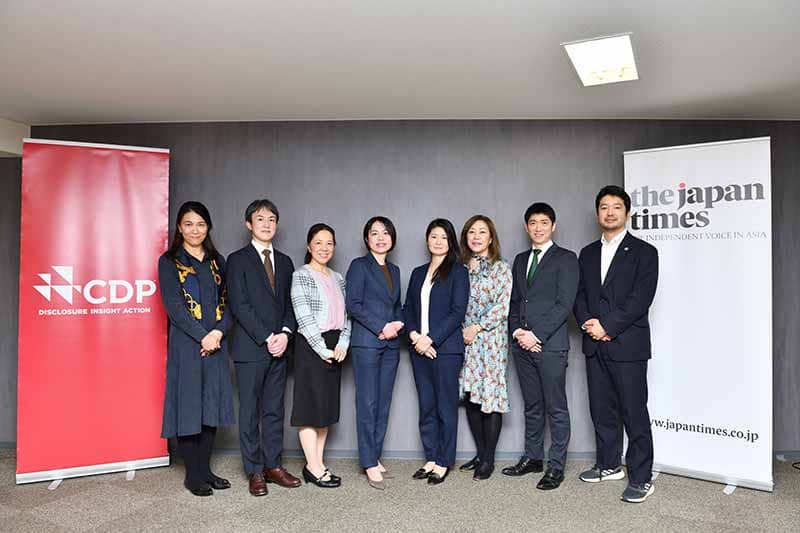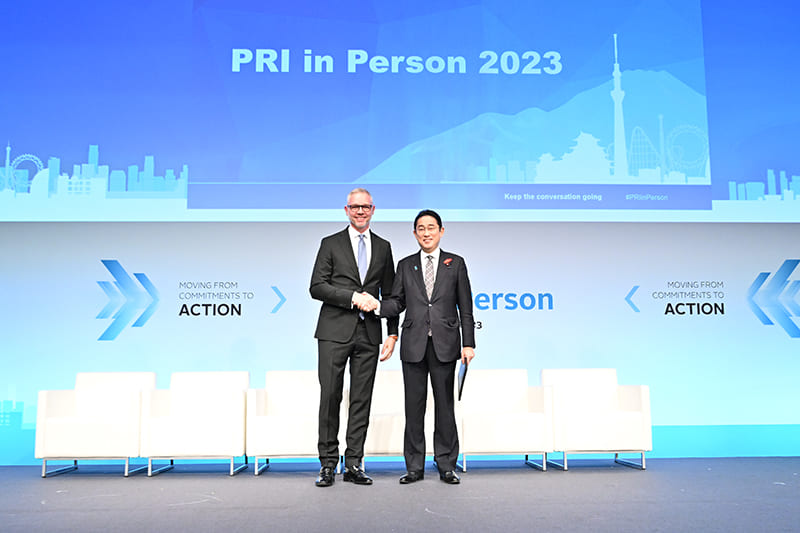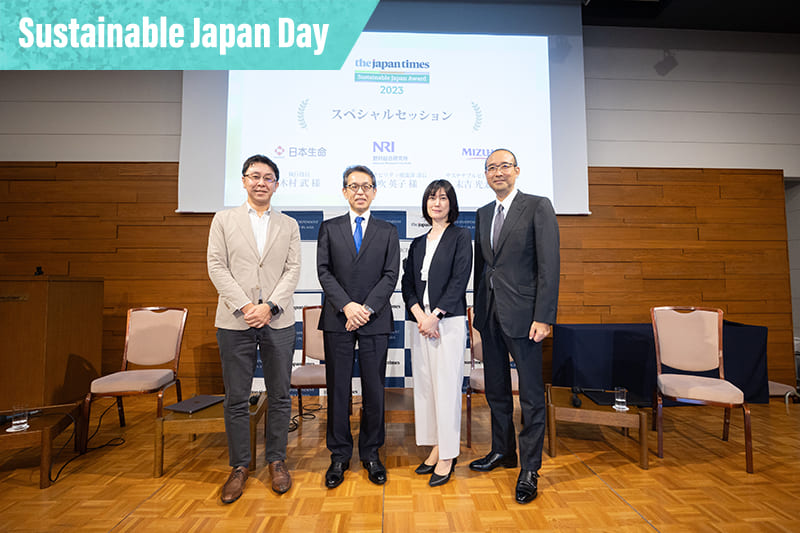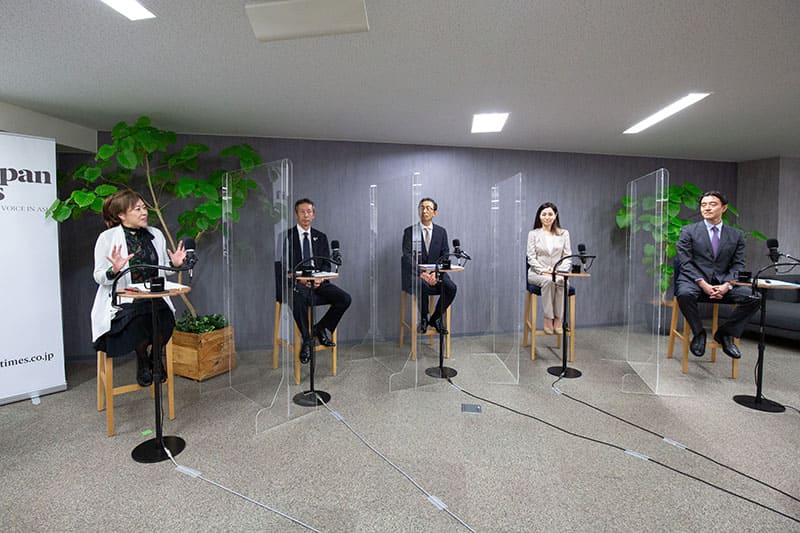January 06, 2023
Regional efforts to help local society transition using public and private funds
SPONSORED CONTENT

In the panel discussion of a CDP symposium held in December, officials from the Tokyo Metropolitan Government and the city of Kyoto, as well as from a newly established public-private fund, the Japan Green Investment Corporation for Carbon Neutrality (JICN), discussed regional efforts to effectively utilize both public and private funds for local society, including for businesses to transition to net-zero emissions. Tokyo and Kyoto were named to CDP’s A List for two consecutive years in 2021 and 2022.
Kaori Nakamura, in charge of the Global Financial City: Tokyo project in the Office of the Governor for Policy Planning, explained that Tokyo’s green finance efforts have been consolidated in the Tokyo Green Finance Initiative, one of the three pillars of Global Financial City: Tokyo, which has been developed since 2017. Tokyo was the first municipal government in Japan to issue green bonds in 2017, and it also launched social bonds in 2021.
The Tokyo Metropolitan Government also subsidizes the costs incurred when companies issue green bonds, including external review and consulting fees. It supports financial institutions that offer loans whose interest rates are linked to the extent of achieving ambitious sustainability targets set by borrowers, especially small and medium-size enterprises.
Tokyo Sustainable Navi, a portal website run by the metropolitan government, is also intended to support small and medium-size enterprises by sharing information on sustainable management and related subsidies as well as examples of sustainability efforts by some of the more advanced enterprises.
“Among some of the public-private investment funds that we engage in, the Sustainable Energy Fund, established in 2022, invests into renewable energy generation plants and other clean energy facilities,” Nakamura said.
The city of Kyoto issued green bonds for the first time in 2022. Aya Nagata, director of the Energy Policy Department at the city’s Global Environment Policy Office, pointed out that less than 30% of big companies and not even 4% of small and medium-size enterprises in Kyoto have received ESG investments and loans. “A survey shows that about half of all companies recognize that decarbonization is a must, but about 80% of SMEs do not even know how much carbon they are emitting. We need to promote green finance among local financial institutions,” she said.
She said that when sales representatives of local banks become familiar enough with ESG investments and loans to speak about them in their own words, these financial products will start to become a regular part of managing local industries and companies.
To accelerate the decarbonization transformation in an area home to many cultural heritage sites, a shopping district and homes, the municipal government is working on the launch of local green impact financing. “We aim to visualize how the impact brought about by decarbonization contributed to solving some of the regional issues,” Nagata said.
Satoru Iino, who leads JICN’s Department of Management Planning and General Affairs, said one important theme is the other values that will arise from efforts to achieve net-zero emissions. “The ultimate goal is that the charm of the region will be polished through such efforts, attracting people, money and businesses,” he said. This is a core concept of JICN itself: to promote new technologies and business models, and encourage dialogue with regional stakeholders — evaluating not only contributions to decarbonization but also the impact on economic growth and regional revitalization — and to share insights and know-how gained from the investment process with broader stakeholders in society.
He stressed the importance of collaborating with municipalities and private financial institutions so that each region’s particular challenges, timeline and resources can be considered in investment decisions. “We also need to think about how to evaluate the transition period when a company tries to do something that cannot be done overnight or does not have an answer right now, instead of simply evaluating cans and cannots,” he said.
The discussion was concluded with remarks from the three speakers encouraging various stakeholders — especially local financial institutions — to come forward and join collaborations to promote green finance.


















